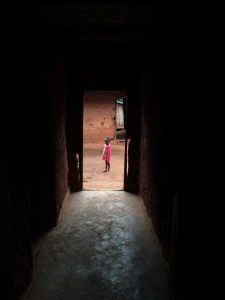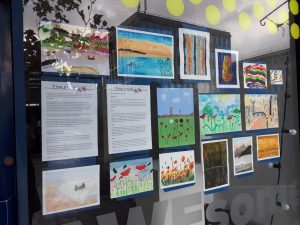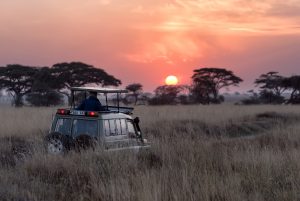IICE funds Development Projects each year, designed to help facilitate research that is challenge-led and geared towards addressing global, national or regional problems through attention to their cultural dimensions ; putting Cultural Enquiry into action.
IICE Development Projects bring together interdisciplinary teams of researchers working with external partners constructing the basis for long-term, impactful projects. These projects are initially modest in scale- though not in substance- enabling academics to build a solid research base, make links with external partners, and develop plans and financing for the longer term.
It is intended to provide vital support for emerging projects that address challenges in a disruptive and innovative manner and that have the potential to enable the development of regional, national, and international partnerships. We are particularly passionate about projects which bring into being methodological innovations, genuine interdisciplinarity and promise for growth and meaningful public benefit beyond the timescale of the Development Fund.
2021-22 IICE Development Fund Projects
We are pleased to be funding the following projects for 2021-22:
- Tracking Animals Through Time: Biodiversity and Cultural Heritage
Dr Jamie Hampson (Heritage), Prof. Naomi Sykes (Archaeology); Prof. Alan Outram (Archaeology) , Prof. Jose Iriarte (Archaeology), Dr Carly Ameen (Archaeology), Dr Rebekah Welton (Theology & Religion ), Dr Angela Cassidy (Sociology, Philosophy & Anthropology ) Dr Helen John (Theology & Religion ), Dr Sean Doherty (Archaeology) Dr Mark Robinson (Archaeology) & Dr Iwona J. Kozieradzka-Ogunmakin (Archaeology)
- Strandlines: Creating Cultural Archives of the Marine Environment
Dr Timothy Cooper (History) & Dr Ruth Thurstan (Biosciences)
- The Politics of Decadence
Prof. Neville Morley (Classics and Ancient History), Dr Kate Hext (English) & Dr Joseph Sweetman (Psychology)
- Africa Writes – Exeter 2022: Networks & Exchanges
Dr Kate Wallis (English and Film) & Malcolm Richards (Graduate School of Education)
- People and Mining Network (P&M)
Dr Deborah McFarlane (Politics), Katie Smith (Cambourne School of Mines), Mr Rowan Halkes (Cambourne School of Mines), Prof. Patrick Foster (Geology and Mining) & Frances Well (Cambourne School of Mines)
- Translation, nation, migration: exploring the cultural dimensions of migration, language, and social identity.
Dr Freyja Cox Jensen (History) & Dr Helena Taylor (Modern Languages and Cultures)
2020-21 IICE Development Fund Projects
Click to navigate to each of our 2020/21 projects below.
- Whose Lives Matter? Race, Gender and Childhood in (Post-)Humanitarian Campaigning at Global and Local Levels: An interdisciplinary interrogation of virality and digital humanitarianism.
- Understanding How to Improve Support to Veterans During Transition into Civilian Life: A deep-dive into the role of Culture and Heritage in supporting veterans during their life transitions.
- Diversity and Participation in South African Wildlife Tourism and Conservation: Understanding and addressing racialised barriers to participation in nature tourism and conservation in South Africa.
- Fragile Faiths: Promoting the cultural preservation of ethnoreligious groups displaced by war.
1. Whose Lives Matter? Race, Gender and Childhood in (Post-)Humanitarian Campaigning at Global and Local Levels- A Case Study of #BringBackOurGirls.
Dr Stacey Hynd (History), Dr Elena Gadjanova (Politics), Dr Lewys Brace (Sociology, Philosophy & Anthropology), with Dr Sefina Dogo Aliyu (Politics & Anthropology).
“Whose Lives Matter? Race, Gender and Childhood in (Post-)Humanitarian Campaigning at Global and Local Levels” is an interdisciplinary interrogation of virality and digital humanitarianism, through a case study of the “#Bring Back Our Girls phenomenon”, combining approaches from History, Ethnography, Sociology, and Political Science.
Overview
 In April 2014, 276 teenage schoolgirls were kidnapped from their school by the militant Islamic group Boko Haram. In response ‘#BringBackOurGirls’ [#BBOG] became a global phenomenon. Yet whilst millions tweeted their support for the ‘Chibok Girls’, there was no similar outcry over other child victims of conflict.
In April 2014, 276 teenage schoolgirls were kidnapped from their school by the militant Islamic group Boko Haram. In response ‘#BringBackOurGirls’ [#BBOG] became a global phenomenon. Yet whilst millions tweeted their support for the ‘Chibok Girls’, there was no similar outcry over other child victims of conflict.
This interdisciplinary project analyses the political, cultural and emotional calculus of concern that determines which children are adjudged befitting of rescue. It explores how and why some humanitarian advocacy campaigns succeed in generating transnational concern, and whether concern and outrage can translate into effective intervention.
It combines approaches from History, Ethnography, Sociology, and Political Science, contrasting the viral phenomenon of #BBOG internationally with the sustained political activism and local advocacy of #BBOG Nigeria. The project undertakes qualitative analysis of humanitarian and human rights literature with historical contextualization. It combines this with in-depth data scrapping of the #BBOG social media campaign, using framing methodology to produce a conceptual vocabulary of social media frames that generate issue salience and promote powerful emotional responses among a global audience. Finally, the project uses ethnographic interviews to unpack the intersections of race, gender, age and religious identification in shaping international and Nigerian responses to the Chibok abductions.
Aims
Why does the international community and global civil society care about some children, whilst the suffering of others goes unremarked? What is the political, cultural and emotional calculus of concern that determined which children are adjudged befitting of rescue? How and why do some humanitarian advocacy campaigns succeed in generating global or transnational concern, particularly in this social media age? And does concern and outrage among transnational civil society in turn translate into effective intervention?
– Hynd et al.
This interdisciplinary project sought to answer the questions above by combining approaches from History, Ethnography, Sociology, and Political Science to study the #BBOG phenomenon. Significantly, the project interrogates the tensions and contrasts between the viral phenomenon of #BBOG internationally and the sustained political activism and local advocacy of #BBOG Nigeria.
Methodologies
Firstly, the project undertakes qualitative analysis of published and grey literature, and archival sources, to identify key humanitarian, human rights and developmental frames. It establishes an historical genealogy of child-saving (and girl-saving) in Africa, locating the #BBOG phenomenon within histories of humanitarian, human rights and developmental interventions from c.1935 to the present, showing how contemporary campaigns are shaped by racialized (post-)colonial legacies and tensions between local and global norms of girlhood. Second, the project undertakes in-depth analysis of the #BBOG social media campaign, data scraping from Twitter, Facebook and Instagram using hashtag searches. It interrogates what frames, tropes, and images become viral in the context of humanitarian interventions (and why) and examine how structural and positional power determine which actors have oversized social media influence in the digital age. Using framing methodology, it will produce a conceptual vocabulary of influential social media frames that generate issue salience and promote powerful emotions responses among a global audience. Third, the project will undertake ethnographic interviews in Nigeria with #BBOG and other advocacy groups, military personnel, local journalists and faith groups. These interviews will unpack the intersections of race, gender, age and religious identification in shaping local responses to the Chibok abductions, highlighting how local understandings and advocacy tactics differed from the international #BBOG campaigns.
Outcomes
This project was severely disrupted on two fronts: 1) by the coronavirus pandemic and its impact on research and staff workloads, and 2) by the co-I Sefina Dogo leaving Exeter and academia, removing our Nigerian expertise and research network. The international fieldwork (Ethnography) and archival research (History) that were intended to be key foci of the research therefore could not be undertaken. As a result, the project was pivoted towards the Politics dimension. Due to these delays, staff workload and project reframing, no outcomes have yet been finalized and data analysis remains ongoing.
2. Understanding How to Improve Support to Veterans During Transition into Civilian Life
Prof Gabriella Giannachi (Performance and New Media) , Dr Sarah Bulmer (Military Studies and International Relations), Dr Anke Karl (Psychology), Mark Littlewood (Armed Forces Hub South West) and Janine Whitley (Armed Forces Hub South West)
This project, which comprised staff from Psychology, Politics and English, as well as staff from an Exeter-based support organisation, The Armed Forces Community Support Hub, is a deep-dive into the role of Culture and Heritage in supporting veterans during their transition from life in the military to civilian life.
Overview

“This project, which comprised staff from Psychology, Politics and English, as well as staff from an Exeter based support organisation, The Armed Forces Community Support Hub, looked into how best to improve the process of transitioning from the armed forces back into civilian life. The team supported the Hub in developing a literature review and conducting 13 interviews to service leavers who were also clients of the Hub. Preliminary findings then helped the Hub to prepare a Government facing document proposing a more structured approach to transitioning and outlining the value of culture and heritage in this process. The funding also led to the production of an art exhibition which due to the pandemic, was held online and is now available on the Hub’s website.”
– Giannachi et al.
Aims
This project aimed to build a better understanding of how to utilise heritage to support veterans, including injured veterans and veterans suffering from mental health related anxiety and PTSD, during their transition to civilian life. The objectives of the project were to develop an innovative conceptual model for transition to support veterans in regaining confidence in themselves and generating new ways of being in the world post-service. The project was in two stages and consisted of two focus group meetings and field research, including a literature review and interviews with veterans. The project was run in collaboration with an organisation with a long-term history of supporting veterans in Devon: The Armed Forces Community Support Hub – Devon/Exeter (AFCSH), formerly called Veterans Change Partner
“Veterans have their own language; they have their own and understandings of certain terms, and they have their own cultural and practical habits in the way they engage with each other…We wanted to identify who veterans are, what they can bring to society, what they like to do, what they want to do, what they need to do, what would make them happier people, and also to understand what institutions and organisations could do to help veterans. We worked very closely with the National Trust on this, and they have been fantastic in helping us to see how this could be done.” – Professor Gabriella Giannachi, IICE Podcast episode 2- Professor Gabriella Giannachi discusses Development Fund Project on Supporting Veterans
Outcomes
“The pandemic meant that we needed to change the project quite significantly. Instead of employing a research assistant, we decided to transfer knowledge and train one of the veterans to conduct the literature review and interviews. After the training, she completed both tasks, interviewing 13 veterans. Findings from the knowledge transfer exercise were analysed by the team, and then discussed with a wider group of veterans. This led to the production of a straw man report (military name for a long report) compiled by the Hub’s director Simon Shadbolt, a retired RM Brigadier, which went to Westminster. The particular Wellcome Trust fund we had aimed to apply for closed and, instead, Giannachi supported the Hub manager in understanding what kinds of external funding could be applied for and how best to align the Hub’s mission towards becoming a charity. Thus during the course of the project the Hub bid for three Covenant projects, an Awards for All project, DCC and ECC COVID-related funds, which were all successful, helping the hub to establish itself as a charity and understand its own role in defining best practice in the field. The last part of the funding was used to create an exhibition with some of the artwork produced by the veterans thanks to the Covenant grant, which was used to inspire other veterans. The work was presented at an IICE seminar in 2020/21”
-Giannachi et al. 2021
3. Diversity & Participation in South African Wildlife Tourism and Conservation: Race, Culture, Performance
Dr Michael Pearce, Prof Tim Coles and Dr Evelyn O’Malley
This interdisciplinary project- which brings together an international team with backgrounds in theatre and performance studies, tourism and business management, geography and cultural heritage, along with government and industry stakeholders- is focused on understanding and addressing racialised barriers to participation in nature tourism and conservation in South Africa.

This research project explores the potential of theatre and performance to address the under-representation of South Africans of colour in nature-based recreation in national parks. This topic of research is prompted by the biodiversity crisis and the need to engage all people in the protection of their natural environments if global long-term sustainability goals are to be met (United Nations Sustainability Goals; Biodiversity Convention). Engaging in nature-based activities supports nature connectedness and is the main pathway to nurturing pro-nature conservation behaviour (Richardson et al, 2020).
In South Africa, national parks play an important role in providing people with access to nature-based activities such as viewing wildlife and, by extension, opportunities to forge meaningful connections with nature. However, the whiteness of these spaces and of wildlife tourism practices raises concerns that citizens of colour are being excluded from participating in the future protection of their environment.
This project positions theatre and performance as ideal areas of exploration to understand how racial discrimination operates implicitly through culture to produce inequality of access to environmental assets such as national parks. It also uses theatre and performance practice as a means of experimenting with creating more welcoming and inclusive park environments and wildlife-viewing experiences.
Aims
“This research project is focused on understanding and addressing racialised barriers to participation in nature tourism and conservation in South Africa. Underpinning the project is the hypothesis that increased domestic tourism by black South Africans could aid long-term and sustainable biodiversity conservation efforts. The International Institute for Cultural Enquiry (IICE) Development Fund will support pump-priming activity in South Africa, bringing together an international team with backgrounds in theatre and performance studies, tourism and business management, geography and cultural heritage as well as with government and industry stakeholders, including South Africa National Parks. This project positions theatre and performance alongside social scientific methods as an ideal area of exploration and practice to understand and address how racial discrimination operates implicitly through culture to produce inequality of access to environmental assets such as national parks and marginalisation from conservation practices.”
– Pearce et al. 2020
Outcomes
Despite barriers to international travel caused by the Covid-19 pandemic, the following objectives were achieved:
- Gained greater understanding of the South African context and the wider research context for the project through an in-depth literature review.
- Assessed feasibility for an interdisciplinary and international research project through discussions and planning meeting with a range of stakeholders, including representatives from South Africa National Parks, and South African researchers and experts in relevant areas.
- Determined case study schools and parks for the future research project through discussion with experts.
- Designed and costed the two-year research project.
- Forged industry and academic partnerships and developed new networks for impact associated activities.
An AHRC fellowship grant application is currently being completed and will be submitted at the end of this year.
4. ‘Fragile Faiths’
Prof Christine Robins (Kurdish Studies) and Prof Emma Loosley (Theology)
This project comprises of a comparative study of processes of continuity and change in the ‘fragile faiths,’- a term here applied to certain ethnoreligious groups violently displaced by war, placing their cultural survival in doubt- with essential participation from community members as researchers and partners. Its aims are not to ‘save’ fragile faiths, but to promote cultural preservation where deemed appropriate, and to share community strategies on managing cultural change whilst preserving identity.
Overview

This restricted workshop focused on three endangered religious communities– Yezidis, Mandaeans and Syrian Orthodox Christians – who have suffered displacement, genocide and ethnic/religious cleansing. They have been historically spread over territories that cover several modern nation states – primarily Iraq, Turkey and Syria, but also reaching into parts of Iran. Small communities like theirs face an uncertain future in exile or attempting to rebuild in an insecure homeland. In the Middle East, home of many ancient religious minorities, at least 4 million people face the real possibility of cultural extinction at home by the end of this century.
A panel of members of the Yezidi, Syrian Orthodox and Mandaean communities presented their concerns and their requests for action to an audience of NGOs, academics and a representative of Fiona Bruce MP, the Prime Minister’s special envoy on Freedom of Religion and Belief.
Aims
Our project will comprise a comparative study of processes of continuity and change in the ‘fragile faiths,’ with essential participation from community members as researchers and partners. Its aims are not to ‘save’ fragile faiths but to promote cultural preservation where deemed appropriate and to share community strategies on managing cultural change whilst preserving identity. Our workshop begins this by placing members of Yezidi, Mandaean and Syrian Christian groups in dialogue with each other to identify common concerns. Then, they will feed back to parliamentarians.
“We coined the term ‘fragile faiths’ to apply to certain ethnoreligious groups violently displaced by war in Iraq and Syria, which placed their cultural survival in doubt. They share certain attributes which render their cultural continuity uncertain when displaced – endogamy as a basis for identity, a strong religious attachment to place within the homeland and (for many) limited distribution of religious knowledge across the community. Among the ‘fragile faiths’ are: Yezidis, Mandaeans (aka Sabians), Yaresani/Ahl-e Haqq/Kakai; certain groups of Alawites, Shabaks, Alevis ; Zoroastrians, (including Parsis), and Druze; and even ‘non-heterodox’ groups such as Syrian Christians.”
– Robins et al. 2020
Outcomes
- The communities reflected that it was useful to work together on common ground.
- The communities issued a number of requests, which were then posited as parliamentary questions and answered.
All communities recognised the issues of preserving culture in a host country where numbers are small “We want to integrate in Britain without losing our own culture,” “We have manuscripts but really it’s all oral, it’s all intangible,” “We carry our culture in our hearts.” Mandaeans and Syrian Orthodox called particularly for cooperation with academics on digitisation of manuscripts and objects and on enabling the teaching of their endangered languages to children. They also called on librarians and museum curators to use cataloguing to make their relevant holdings more visible and accessible to members of these communities.
It was agreed by all participants that this had been a valuable experience that suggests that they will be more effective in seeking change and extra support if they work together in future, rather than seeking common cause only with their co-religionists. As part of this process, they requested that in future events refer to the indigenous people and faiths of Syria and Mesopotamia, as they all have faith traditions reaching back two thousand years in the same region and their ancestors have remained in the same towns and villages until war and terrorist atrocities displaced them between the late twentieth century and the present day.
Robins et al. 2021
